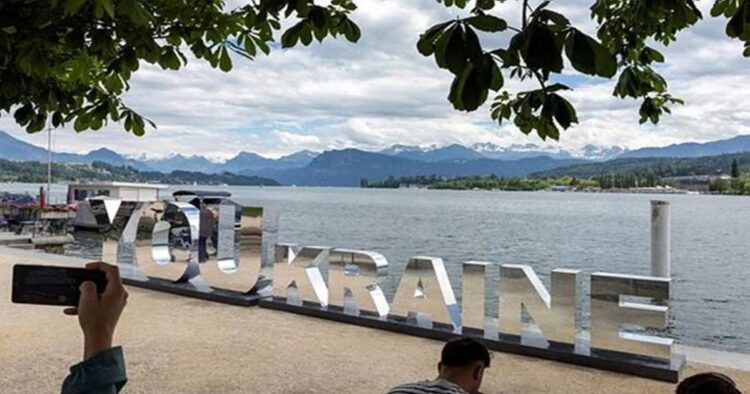This weekend, Switzerland is hosting a crucial gathering of world leaders to discuss peace efforts for Ukraine, even though Russia, the country that initiated the conflict, will not be participating. The summit aims to lay the groundwork for resolving the ongoing crisis in Ukraine, which has led to international sanctions against Russia and heightened tensions with NATO.
Approximately 90 delegations, including heads of state from countries such as France, Germany, Japan, and Canada, will attend the summit at Buergenstock Resort in Switzerland. Notably absent are US President Joe Biden, who has sent Vice President Kamala Harris instead, and China, a key ally of Russia.
The Ukrainian President Volodymyr Zelenskyy has actively sought participation from Asian and other nations to bolster international support.
The conference, based on a 10-point peace formula proposed by Zelenskyy, is largely seen as symbolic, symbolizing Kyiv’s efforts to rally global solidarity against Russian aggression. However, discussions are expected to focus on less contentious issues like nuclear safety and humanitarian aid rather than the thorny topics of troop withdrawals and border disputes.
Zelenskyy’s peace plan outlines ten proposals aimed at ending the invasion and restoring Ukraine’s territorial integrity, including the withdrawal of Russian troops from occupied areas and restoring control over Crimea. However, Ukraine faces challenges negotiating from a position of military disadvantage against Russia’s superior firepower.
Russian Perspective and Criticism
Russian President Vladimir Putin has criticized the summit, dismissing it as a distraction and insisting that any meaningful dialogue must involve Russia directly. He has advocated for a peace agreement that includes Ukraine’s neutrality and limits on its military capabilities, delaying discussions on the status of occupied territories.
ALSO READ: “PM Modi Emphasizes Peaceful Resolution in Talks with Zelenskyy at G7 Summit”
While some analysts are skeptical about immediate outcomes, the summit could enhance Ukraine’s diplomatic standing and reaffirm international support for its sovereignty. The success of the summit hinges on future dialogues that include all stakeholders, particularly Russia, to achieve substantive progress towards a lasting peace agreement.
As the Switzerland summit unfolds, it serves as a crucial moment in diplomatic efforts to address the Ukraine crisis. Despite challenges and skepticism, the gathering underscores global efforts to find a peaceful resolution to one of Europe’s most significant conflicts in recent history. The outcome remains uncertain, but the discussions mark a crucial step towards potential peace negotiations in the future.

















Comments